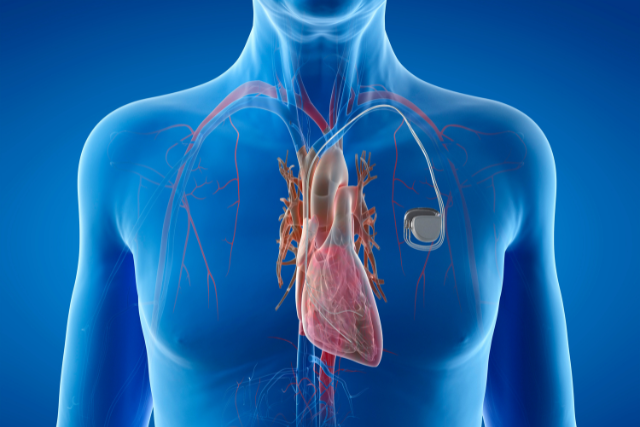Arrhythmia
An arrhythmia (also called dysrhythmia) is an abnormal heartbeat. Arrhythmias can start in different parts of your heart and they can be too fast, too slow or just irregular.
Normally, your heart beats in an organized, coordinated way. Issues with various parts of your heart — or even the blood your heart pumps — can affect your heart’s normal rhythm. Having a normal heart rhythm matters because your heart supplies your whole body with nutrients and oxygen through the blood it pumps.
How serious is a heart arrhythmia?
Some types of arrhythmia are harmless and don’t require treatment. Others can put you at risk for cardiac arrest. Many are in between these two extremes. A healthcare provider can tell you which type of arrhythmia you have and what kind of treatment you need, if any.

How common is arrhythmia?
An estimated 1.5% to 5% of people have arrhythmias. However, some people don’t have symptoms, making it difficult to estimate how many people actually have arrhythmias. In the U.S., atrial fibrillation is the most common type of arrhythmia.
What are the types of arrhythmia?
Healthcare providers describe arrhythmias by where in your heart they start.
- Supraventricular arrhythmias: These begin in your atria (your heart’s upper chambers). “Supraventricular” means above your ventricles or lower chambers of your heart.
- Ventricular arrhythmias: These begin in your heart’s ventricles or lower chambers.
- Bradyarrhythmias and junctional rhythms: These can happen because of issues in your heart’s conduction system, such as the sinoatrial (SA) node, atrioventricular (AV) node or His-Purkinje network.
Symptoms and Causes
What are the warning signs of arrhythmia?
Heart arrhythmia symptoms may include:
- Heart palpitations.
- Dizziness or lightheadedness.
- Fainting episodes.
- Shortness of breath.
- Chest discomfort.
- Weakness or fatigue.
A cardiac arrhythmia may be “silent” and not cause any symptoms.
What causes arrhythmia?
Arrhythmia causes include:
- Coronary artery disease.
- Irritable tissue in your heart (due to genetic or acquired causes).
- High blood pressure.
- Changes in your heart muscle (cardiomyopathy).
- Valve disorders.
- Electrolyte imbalances in your blood.
- Injury from a heart attack.
- The healing process after heart surgery.
- Other medical conditions.
